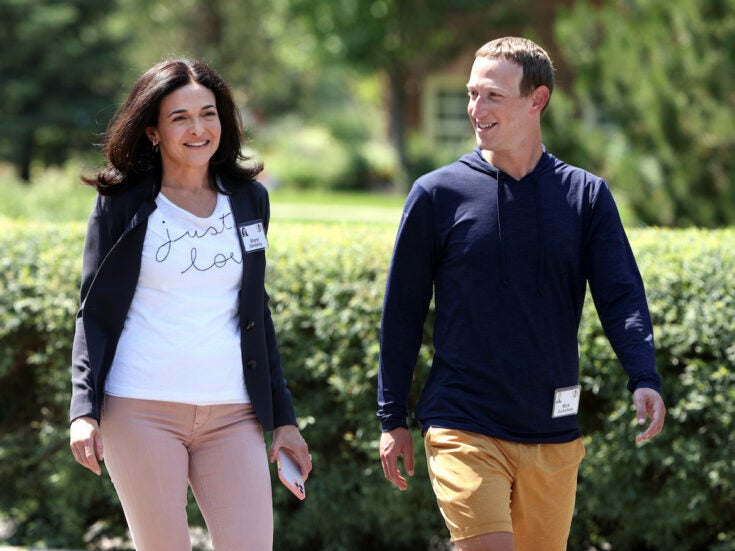
GENETIC MODIFICATIONS
Businesses often owe their success to family togetherness, but that same connection can also be the ultimate cause of their downfall, says James Suenson-Taylor
MY GRANDFATHER ONCE smashed up a piano using a sledgehammer in front of a startled official from British Rail, which was responsible for transporting his firm’s goods. ‘That’s how your company is treating my furniture,’ he said calmly when he had finished. I imagine, looking at the ruined piano, the poor chap thought he was to be next and scuttled off as quickly as he could.
Besides making a powerful point, it also revealed my grandfather’s attitude to the company: it was his company, his goods, his money that had been created by his hard work. His endeavours established a retail empire whose customers were working-class households. It joined the overwhelming number of companies in the UK — around 70 per cent — that are family owned and he built it into one of the largest privately owned businesses in Europe, employing more than 300,000 people with an annual turnover of £4.5 billion.
This should have set it up for continued long-term success for, as Credit Suisse discovered from its own research, businesses with a strong family involvement in their ownership and direction perform markedly better in the long term, and especially over the financial crisis, than the classic quoted company with multiple institutional investors.

However, it didn’t work out like that because the family failed to hold on to the business: as the fourth generation of shareholders began to take up their portions, the inheritance was sold. This was an all too familiar end to the family ownership of a business. Perhaps we should have been proud to have outlasted the majority of privately owned enterprises. Either way, the process of reaching the decision to sell could be broken down into tenths: one part economic opportunity, three parts need, five parts emotion and one part stupidity. That’s family businesses (and families) in a nutshell.
The seeds of destruction were sown by the success of Grandpa, who was an out-and-out entrepreneur, a driven and hungry individual determined to escape the poverty into which he had been born. He understood his market perfectly and shaped his business to be the outlet for the working-class dreams of millions. He drove the business. He was the inspiration, the energy and, as the ultimate authority, the dictator. Therein lay the problem: dictators leave a vacuum behind them because they don’t encourage future leaders, particularly good leaders who may have different ideas about the best direction for the business.
‘Nobody can run the business as well as me,’ would be a typical view that a successful owner develops about their own importance. It also encapsulates the understandable feelings of rivalry and jealousy that founder-owners experience towards potential successors waiting to take control of their beloved organisations. So, although they may consciously seek to perpetuate their organisations through the wise choice of successor, unconsciously they also seek to demonstrate that no one can succeed them.
HERE’S WHERE THE emotion begins to kick in. The founder isn’t simply building a business, he is also building a medium for his own gratification. His self-image is completely tied up with the business and its success. In turn, his position of power in the business and in the community is heavily reliant on the business itself.
The passing-on of the leadership role diminishes his standing in a business that is now in someone else’s control. Who would want that? So, the supreme leader doesn’t want his children to take over and doesn’t develop successors in his family. Inevitably, then, in come outsiders, and the children aren’t overjoyed. Cue big problems as the children (who have all the shares) don’t support the outsider in charge.
This raises a fundamental dichotomy between families and business that is not often overcome. Families are emotion-based: members tend to be bound by deep ties and relationships. They can be introspective and place great store on long-term loyalty and nurturing. Businesses, on the other hand, are task-oriented with an emphasis on performance and results. They need to innovate and embrace change to ensure survival.

But while the two require very different approaches and inputs, both feed off each other. The business needs the support of the family to continue and the family needs the success of the business to be the glue that holds it together. Interestingly, the grandchildren enjoy being a part of a recognised tribe and enjoy the status in the community that attaches to the tribe thanks to the success of the business. It’s all very intoxicating and it’s all because of the business. It generates a fierce, perhaps unwarranted, pride.
THE DIVERSITY OF our shareholding created tensions within the tribe. By the third generation there were 36 shareholders, some very remote from the business. On paper they were wealthy but, in reality, they had no money, couldn’t sell their shares and had no control of their wealth. These people wanted their wealth out of the company and under their own control.
Joining forces with them were those who felt that the lack of leadership was damaging the business and wanted to get their wealth out of the company before it was further eroded. Even those who believed that the company could rebound started to grow tired of the increasing pressure from those who wanted an end. Ultimately they agreed to sell.
Suitors for the company began to appear and eventually the family sold up. It was inevitable. The lack of a succession plan dictated the train of events which could only conclude in a sale of the family business. </p>
Following the sale, as if to demonstrate that the company was the glue that held the family together, cousins began to drift away and lose contact. Whereas we would all meet up four or more times a year and speak on the telephone often, we now no longer have a group dynamic and never meet en masse. The tribal attachment became severed; we fell into small, disjointed units.
After the initial feelings of relief over the sale, views became polarised. Those who had pushed hardest and loudest for a sale were delighted, vindicated and emancipated while those who had given in felt a great loss. As one put it: ‘It was as if I had been cast out of my parents’ house and, with £5 in my pocket, now had to make my own way in the world.’
As a group we haven’t met since, and I don’t expect we ever will. Personally, I miss our gatherings, a time when we would congregate not just to debate business (and we were remarkably civil to one another) but also to chat about ourselves and our immediate families over lunch or coffee.
Without the magnet of the company to draw us together, these distant cousins would never have met under any other circumstances; they would have passed each other in the street without recognition. I feel privileged to have been involved in a great enterprise and I am sorry that I was not able to be the custodian of shares for the next generation.
Illustration by Rich Gemmell
Read more on family businesses from Spear’s
Don’t miss out on the best of Spear’s articles – sign up to the Spear’s weekly newsletter
[related_companies]







